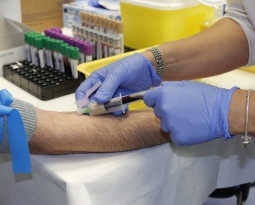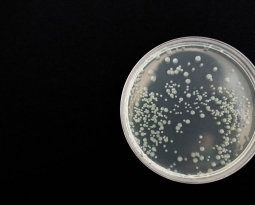Maryland Patent of the Month – July 2022
Scanogen Inc., a molecular diagnostics company, is focused on developing the systems and technology needed to provide rapid and easy access to the biomolecular information of body fluids with the goal of improving health care. Part of this process is developing solutions capable of detecting a target rapidly and accurately. The company has recently patented their detection units and a methodology capable of detecting a target analyte.
Traditionally, a copy must be made before a target can be detected. Scanogen’s solution does not need to amplify nucleic acids before detecting them and can detect targets directly. The methodology detects target analytes using a complex formed by the target and a couple probes. The probes are coupled to a detectable piece. The specific binding of this detectable piece to the target analyte is distinguishable from the non-specific binding of the detectable piece. The process of distinguishing this to detect the target analyte is:
- Expose the target analytes, probes, detectable pieces, and solid supports to a disruptor;
- The disruptor uncouples the detectable pieces from the solid support;
- The uncoupled pieces move and some specifically bind the target analyte;
- Measure the difference in the number of detectable pieces which were first attached to the solid supports and those that remain after disruption. The difference indicates the presence and concentration of the target analyte
Their technology, coined Single MOLecule Tethering (SMOLT), can detect microorganisms at 1 CFU/mL with a turnaround time of less than 90 minutes. Scanogen is using their privileged location in Baltimore to collaborate with Johns Hopkins University and government agencies in Washington D.C. They have received NIH grants totaling $9.5 million to develop these diagnostic assays.
Are you developing new technology for an existing application? Did you know your development work could be eligible for the R&D Tax Credit and you can receive up to 14% back on your expenses? Even if your development isn’t successful your work may still qualify for R&D credits (i.e. you don’t need to have a patent to qualify). To find out more, please contact a Swanson Reed R&D Specialist today or check out our free online eligibility test.
Who We Are:
Swanson Reed is one of the U.S.’ largest Specialist R&D tax advisory firms. We manage all facets of the R&D tax credit program, from claim preparation and audit compliance to claim disputes.
Swanson Reed regularly hosts free webinars and provides free IRS CE and CPE credits for CPAs. For more information please visit us at www.swansonreed.com/webinars or contact your usual Swanson Reed representative.

















